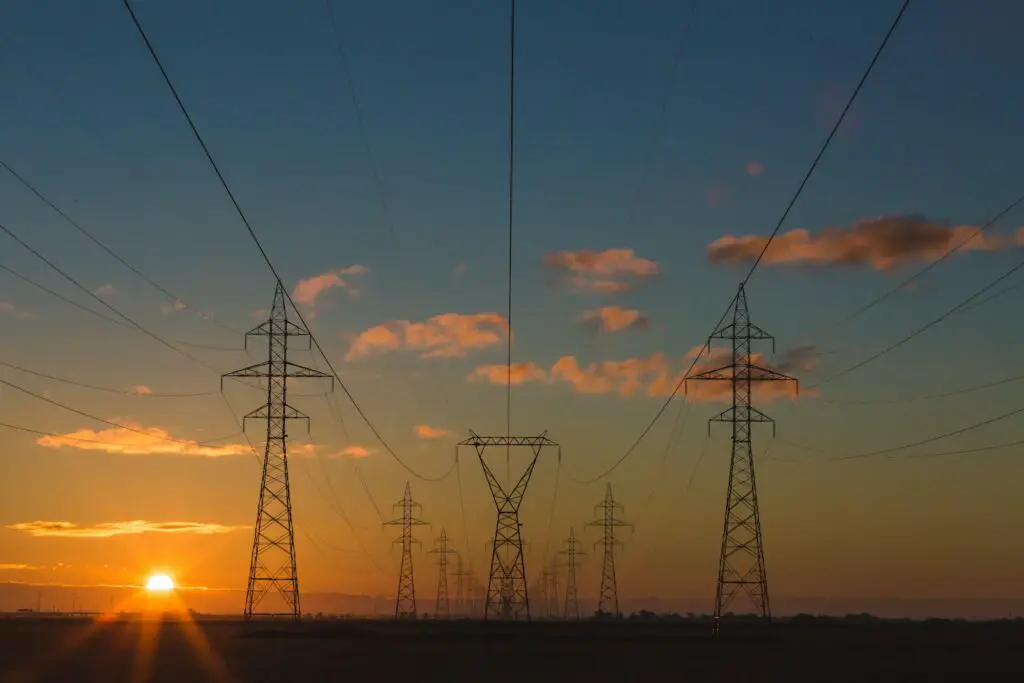Nuclear energy is a highly controversial topic, with passionate advocates and detractors pointing to its potential as a powerful and virtually limitless source of electricity and critics raising concerns about safety and waste disposal.
However, there is no denying that nuclear power is a potent energy source, and it has the potential to play a crucial role in meeting the growing energy demands of the world sustainably and responsibly.
This article will explore key reasons why nuclear energy is the most powerful energy source.
Advantages of Using Nuclear Energy
First and foremost, nuclear energy is highly efficient. Nuclear power plants have a much higher capacity factor than other forms of electricity generation, meaning they are able to produce electricity at a much higher rate.
This is because nuclear reactions can release vast amounts of energy from a relatively small amount of fuel, making them incredibly efficient at generating electricity.
A single gram of uranium-235, the most common fuel used in nuclear power plants, has the same energy content as about 3,500 gallons of oil.
This makes nuclear energy an extremely efficient and cost-effective source of energy.
Has low carbon emissions
Another critical advantage of nuclear energy is its low carbon emissions.
While fossil fuel-based electricity generation is a major contributor to greenhouse gas emissions and climate change, nuclear power produces no carbon dioxide emissions during operation.
This makes it an attractive option for countries and organizations looking to reduce their carbon footprint and mitigate the negative impacts of climate change.
It is also a virtually limitless source of electricity, with the world’s known uranium reserves sufficient to meet the current demand for hundreds of years.
This makes it an attractive option for countries looking to reduce their reliance on fossil fuels and transition to a more sustainable energy mix.
Is a reliable source of power
Additionally, nuclear energy is a reliable source of power.
Nuclear power plants can operate around the clock, providing a constant, steady stream of electricity.
This is especially important in countries and regions where other forms of electricity generation, such as solar and wind, may be intermittent or unavailable.
Has a small physical footprint
Furthermore, nuclear energy has a relatively small physical footprint compared to other forms of electricity generation.
While a coal or natural gas power plant may require hundreds of acres of land, a nuclear power plant can be built on much smaller land, making it a more space-efficient option.
Additional benefits of nuclear energy
In addition to its high-power density, nuclear energy has a number of other advantages as a source of electricity or power.
It is a reliable and consistent energy source, with protected nuclear power plants able to operate at full capacity for extended time periods.
It is worth noting that it’s relatively low-emitting, with nuclear power plants producing significantly fewer greenhouse gases and air pollutants than fossil fuel-burning power plants.
Some Uses of nuclear technology
Some of the uses of nuclear technology that make it unique include its use in advanced agricultural technologies, used to explore space, among others, as discussed below.
It is used in space exploration
Nuclear technology is used in space exploration, where it is used to power spacecraft and provide electricity for other applications.
This technology is particularly useful in space exploration because it can provide power for extended periods without the need for refueling.
Used in the field of medicine
One of the most important uses of nuclear technology is in the field of medicine. Nuclear medicine involves using small amounts of radioactive isotopes to diagnose and treat diseases.
For example, nuclear medicine techniques can create images of the inside of the body, allowing doctors to identify and diagnose diseases such as cancer, heart disease, and other conditions.
Nuclear medicine can treat certain diseases, such as cancer, through radiation therapy.
Used in agriculture
Nuclear technology is also used in agriculture, where it can improve crop yields, control pests, and reduce the need for chemical fertilizers and pesticides.
In addition to this, nuclear techniques are used in the production of food and water to ensure safety and quality.
Finally, nuclear technology also plays a critical role in the field of environmental protection, where it is used to monitor and assess the impact of human activities on the environment, as well as to monitor and remediate contamination from nuclear accidents or other sources.
Concerns surrounding nuclear energy
One of the main concerns surrounding nuclear energy is the issue of nuclear waste.
While nuclear power generates radioactive waste that must be carefully managed and stored, the amount of waste produced is quite small compared to other forms of electricity generation.
Numerous technologies are available for safely storing and disposing of nuclear waste, and research is ongoing to develop new and more effective methods.
The issue of nuclear waste remains a major obstacle to the wider adoption of nuclear energy.
Nuclear energy also has got its disadvantages. It is important to note that it has its risks. The potential for nuclear accidents, such as the Fukushima disaster in Japan, is a major concern for many people.
However, the number of serious nuclear accidents in the history of nuclear power is extremely low, and safety measures and regulations have been significantly improved in recent years to mitigate the risk(s).
Despite these challenges, it is clear that nuclear energy has the potential to be a powerful and reliable source of electricity.
Technological advances make it possible to mitigate the risks associated with nuclear energy and harness its full potential as a clean and virtually limitless power source.
Conclusion
In conclusion, nuclear energy is a powerful and virtually limitless source of electricity/power that has the potential to play a significant role in meeting the world’s growing energy needs.
While there are risks and challenges associated with nuclear energy, these can be mitigated through technological advances and safety measures.
Nuclear energy should be considered a viable and responsible option for sustainably meeting the world’s energy needs.







